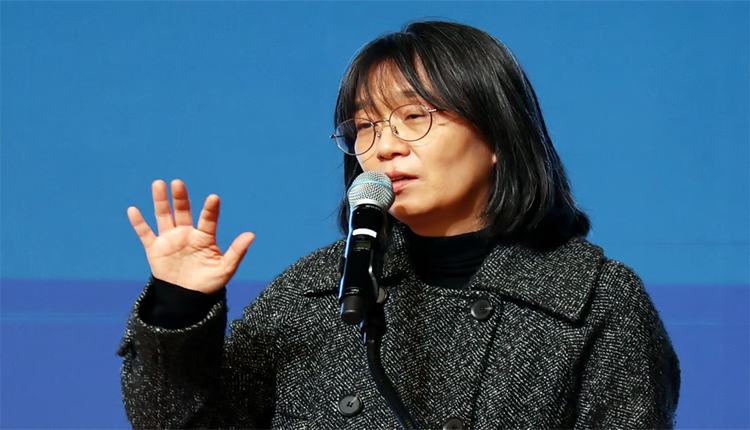Stockholm: The 2024 Nobel Prize in Literature has been awarded to South Korean author Han Kang, renowned for her profound and poetic prose that highlights the fragility of human life. Kang’s works, including The Vegetarian, The White Book, Human Acts, and Greek Lessons, have captivated readers worldwide, exploring complex themes with sensitivity and depth.
Born in Gwangju, South Korea, in 1970, Han Kang moved to Seoul with her family at the age of nine. She is the daughter of a respected novelist, and her upbringing played a significant role in shaping her literary career. In addition to her writing, Kang has dedicated herself to the arts and music, reflecting her multifaceted talents.
Kang’s literary journey began in 1993 with the publication of several poems in the Korean magazine Literature and Society. She made her prose debut in 1995 with a collection of short stories titled Love of Yeosu (in Korean). This marked the beginning of a prolific career that would soon gain international acclaim.
One of Kang’s most notable works, The Vegetarian, is structured in three parts and delves into the violent repercussions that follow the protagonist’s decision to stop eating meat. The novel has been widely praised for its exploration of societal expectations and personal choices, showcasing Kang’s ability to weave intricate narratives that resonate on multiple levels.
On 9th October 2024, the Nobel Prize in Chemistry was awarded to scientists David Baker, Demis Hassabis, and John Jumper for their groundbreaking work on proteins. With Han Kang’s recognition, the total number of Nobel laureates in literature now stands at 121, including 18 women. Rabindranath Tagore remains the only Indian to have received the Nobel Prize in Literature, which he was awarded in 1913.
As Han Kang’s profound contributions to literature are celebrated, her work continues to inspire and challenge readers, prompting deeper reflections on the human experience. The Nobel Prize serves as a testament to her impactful storytelling and the rich cultural landscape of contemporary literature.



Comments are closed.